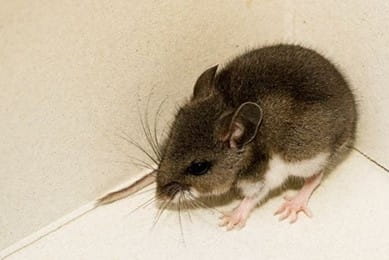Released on April 24, 2024
Saskatchewan residents are being reminded to take precautions against hantavirus as they start their spring cleanup.
Hantavirus infection is caused by breathing in contaminated airborne particles from the droppings, urine or saliva of infected deer mice. It can cause a rare, but potentially fatal lung disease known as hantavirus pulmonary syndrome.
"Exposure to hantavirus most often occurs when cleaning enclosed buildings, or equipment and vehicles after winter," Saskatchewan's Deputy Chief Medical Health Officer Dr. Julie Kryzanowski said. "Particles can become airborne after sweeping, but it's also possible to get the virus by touching something that has been contaminated, and then touching your nose, mouth or eyes."

The following precautions should be taken when cleaning outbuildings such as sheds, and unoccupied dwellings such as cabins where evidence of rodent infestation is found:
- ventilate the building by opening doors and windows, and then leave the area for at least 30 minutes before cleaning;
- avoid using dry cleaning methods such as dusting, sweeping, vacuuming or air-hosing;
- use wet mopping methods and wear rubber or plastic gloves;
- wear goggles and a well-fitting N-95 type filter mask when cleaning areas contaminated by droppings;
- dampen areas contaminated with rodent droppings with bleach disinfectant and remove droppings with a damp mop or cloth;
- steam clean, shampoo or spray upholstered furniture with a detergent, disinfectant or a mixture of bleach and water; and
- wash exposed clothes and bedding with detergent in hot water.
Throughout the year, minimize the presence of all rodents by reducing the availability of food sources or nesting materials, and by preventing rodents from entering the home and other buildings. Store human and animal food, water and garbage in pest resistant containers with tightly fitted lids; and move woodpiles or other potential hiding places for mice away from your home.
Hantavirus infections are rare but are serious. Between 1994 and 2023, 38 cases of hantavirus pulmonary syndrome were reported in Saskatchewan; 13 of those cases were fatal. Case numbers include preliminary data for 2023 and are subject to change.
The virus can affect anyone who comes into contact with mouse droppings. Symptoms usually start within one to six weeks of exposure and include fever, muscle aches, cough, headaches, nausea and vomiting. Some people develop severe symptoms that can be life threatening. Seek medical attention immediately if you have a cough, fever and shortness of breath.
For more information on hantavirus, visit: https://www.saskatchewan.ca/residents/health/diseases-and-conditions/hantavirus and HealthLine Online at www.healthlineonline.ca.
For advice on symptoms or when to seek care, call HealthLine 811.
-30-
For more information, contact:
Media Relations
Health
Regina
Phone: 306-787-4083
Email: media@health.gov.sk.ca

